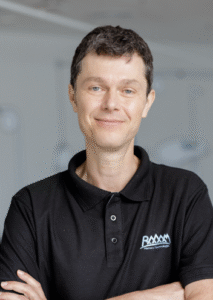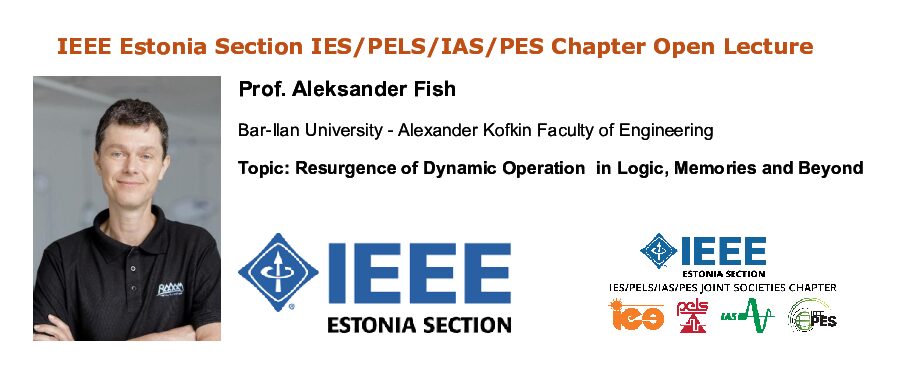IEEE Estonia Section IES/PELS/IAS/PES Chapter is pleased to announce an Open Lecture on
Topic: Smart Battery Management System for E-Mobility and Electrified Transportation
Abstract
Digital integrated circuits and embedded memories play an important role in the energy, performance, reliability and cost targets of almost all electronic devices and silicon-based systems. Over the last four decades, conventional Static CMOS logic and embedded Static RAMs (SRAMs) have become the dominant design methodologies and are now widely used in the semiconductor industry.
In the past, dynamic operation-based logic, such as Domino logic, and embedded dynamic memories (eDRAMs) were proposed and utilized as alternatives to static counterparts. Although classical dynamic circuits promised substantial performance improvements for logic and area reduction for memories, their reliable design in nanoscale CMOS processes became very challenging, resulting in their abandonment in industrial applications.
This talk will explore the potential for a resurgence of dynamic operation in logic and embedded memories using conventional nanoscale CMOS technologies. Specifically, Pro. Fish will demonstrate how design methodologies, such as Dual Mode Logic (DML), can enhance performance, energy efficiency, and area utilization. He will also discuss how modern Gain-Cell (GCRAM) dynamic embedded memory technology can reliably provide up to 50% silicon area reduction and up to 10X reduced power consumption over SRAM, using standard CMOS fabrication flow. Finally, Professor Fish will present the advantages of cryogenic operation of dynamic circuits in the context of high-performance computing and quantum applications. There are also some industrial applications applicable to this technique, like remote vibration monitoring or microscopic movement extraction for various industries.
August 21, Tallinn, Estonia
Venue: Tallinn University of Technology, Ehitajate tee 5, Tallinn, 19086, Estonia
Time: 10:00 a.m., room NRG-422, NRG Building, TalTech
Speaker:

Alexander Fish, Ph.D.
Full Professor, Vice Dean for Innovation and Industry Relations, and co-director of EnICS Impact Center
Alexander Fish received the B.Sc. in Electrical Engineering from Technion (1999) and the M.Sc. (2002) and Ph.D. (summa cum laude, 2006) from Ben-Gurion University. He was a postdoctoral fellow at ATIPS Lab, University of Calgary (2006–2008). In 2008, he joined Ben-Gurion University, where he founded the Low Power Circuits & Systems (LPC&S) Lab and, in 2011, was appointed as head of the VLSI Systems Center. In 2012, he moved to Bar-Ilan University as an Associate Professor and head of the nanoelectronics track, where he founded the Emerging Nanoscaled Integrated Circuits and Systems (ENICS) Lab in 2015. He is currently a Full Professor, Vice Dean for Innovation and Industry Relations, and co-director of the EnICS Impact Center. In 2021, he co-founded RAAAM Technology, a startup focusing on area-efficient, low-power embedded memories. His research interests include power-reduction methods for high-speed digital and mixed-signal VLSI, energy-efficient memory arrays, biomedical circuits/systems/applications, and cryogenic CMOS. He has 200+ publications, 30+ patent applications (22 granted), and has edited two books and contributed three book chapters.
